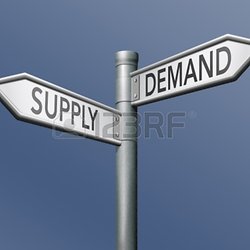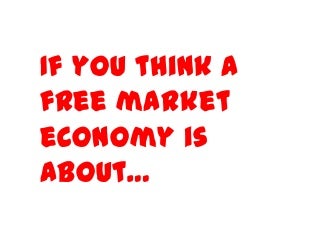 Market economic system relies on supply and demand where the prices of goods and companies are determined within a free value system. Until an economic crisis occurs, it is attainable to take the position that the benefits of a market economic system outweigh its disadvantages, or the alternative position, and to develop a political strategy that accords with one’s view, whatever it is. But if a crisis does away with many of the necessary advantages associated with the market, this is now not attainable.
Market economic system relies on supply and demand where the prices of goods and companies are determined within a free value system. Until an economic crisis occurs, it is attainable to take the position that the benefits of a market economic system outweigh its disadvantages, or the alternative position, and to develop a political strategy that accords with one’s view, whatever it is. But if a crisis does away with many of the necessary advantages associated with the market, this is now not attainable.
The answer is that they are continually changing, and if adjustments generally favor the advantages (not by making the disadvantages disappear, which is unimaginable, but by making them appear smaller), the movement toward economic crisis that is going down in all market economies at present makes it clear that it is the disadvantages associated with the market which might be changing into its most distinguished features.
I have only tried to clarify what is involved in making such a momentous determination, and, alsoand now we return to Kang’s articleto counsel that it’s only by totally laying out the principle advantages and downsides of market socialism that any effective resolution to China’s problems may be found.
Finally, the market economic system leads to periodic economic crises, where all these disadvantages develop to a degree that many of the advantages I mentioned earlier simply dry up —the economic system stops growing, fewer things are made, growth of the forces of production slows down, investment drops off, and so forth.
A blended economic system has lots of the characteristics of market, command and traditional economies The United States is a blended economic system as a result of its Constitution protects lots of the characteristics of a market economic system, including ownership of private property, limitations on government interference, and promoting innovation.
